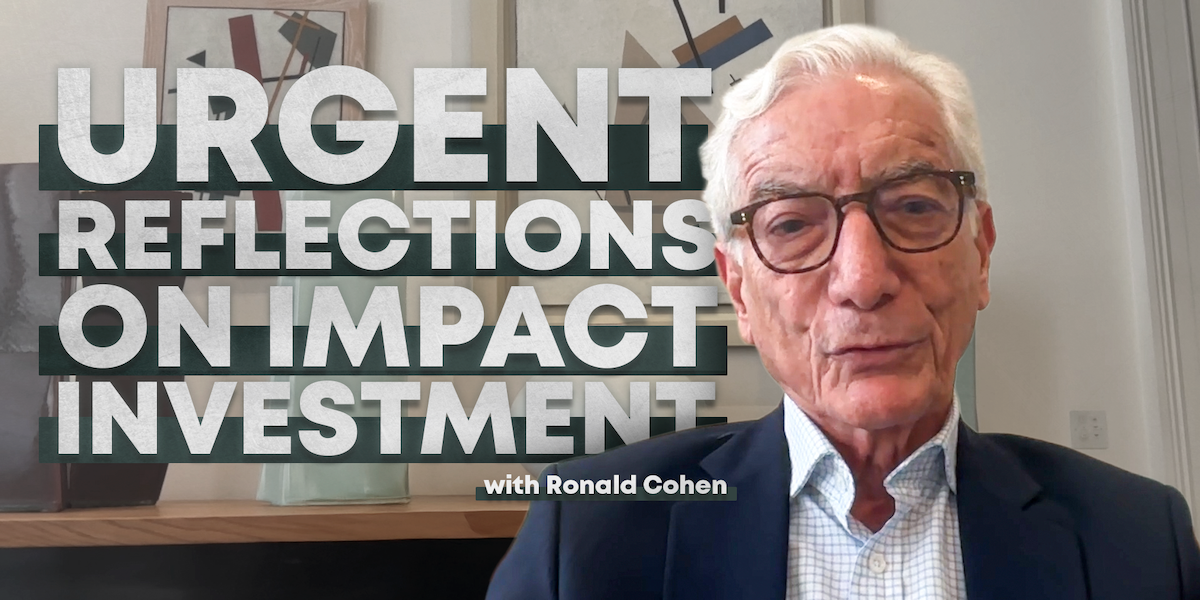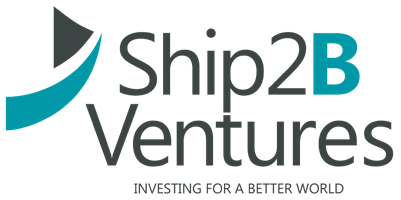
To mark the fifth anniversary of Ship2B Ventures and the 12-year history of the Ship2B ecosystem, Xavi Pont, co-founder and President of the Ship2B Foundation, and co-founder and Managing Partner of Ship2B Ventures, held a conversation with Sir Ronald Cohen, widely regarded as the father of impact investing.
At a time when the value of impact investing is being openly questioned, with climate change deniers, voices dismissing growing social inequality, and critics branding recent ESG (Environmental, Social and Governance) efforts as naïve or ineffective, Ship2B Ventures has chosen to pause and reflect on the current and future challenges of impact investing.
What have we really achieved after two decades of building this movement? Where are the cracks? And, most importantly, what must we preserve if we truly wish to accelerate a just, sustainable, and lasting transformation?
Maintaining a bold, curious, and collaborative attitude is the only way forward. Honest, uncomfortable, and inspiring conversations like this remind us that the path towards systemic transformation is not linear, but it is necessary.
Here are some of the most powerful moments from the interview.
“The world is moving towards impact economies out of necessity, not choice”
Cohen opened the conversation with a striking statement: “We are seeing the limits of a system designed to maximise profit at any cost. The climate crisis, inequality, and political polarisation are symptoms of a model that has reached breaking point. The world is moving towards impact economies out of necessity, not choice.”
Over the past 20 years, the impact movement has evolved from a marginal idea to a growing global trend. Governments, philanthropists, and investors today share a common language around impact. And yet, as Cohen acknowledges, the journey is far from complete. “Our greatest achievement has been to prove that finance can be a force for good. Our unfinished task is to make that the rule, not the exception.”
The backlash against impact: a necessary tension
In recent years, impact investing and ESG criteria have faced political and market backlash, from anti-ESG rhetoric in the United States to growing doubts about their credibility. For Cohen, this tension was inevitable. “Every transformative movement meets resistance once it begins to challenge power and capital. What we are witnessing is not the end of impact, but proof of the movement’s maturity.”
According to Cohen, this opposition is not a sign of weakness but of relevance. “If impact didn’t matter, no one would bother to attack it. The fact that it’s being debated in parliaments and boardrooms means it’s changing the rules of the game.”
Pont agreed that the challenge is not to resist criticism, but to stay bold. “The risk is not that the backlash slows us down, but that it makes us play it safe,” he concluded.
Do we have a credible track record, or are we still taking a leap of faith?
When asked whether the sector has truly demonstrated that impact investing can deliver both returns and measurable impact at scale, Cohen was cautious yet optimistic. “We’ve seen enough success stories to prove that impact and profitability can coexist. But we still lack a consistent and comparable evidence base that can persuade large institutional investors to commit trillions, not just billions.”
What’s missing, he said, is not more storytelling but more data: “What will move the needle won’t be the stories, but the accounting.”
The promise of impact accounting
For over a decade, Cohen has been championing the concept of impact accounting, a system capable of valuing social and environmental outcomes in monetary terms. In his view, this is the missing piece to make impact investing truly mainstream. “Just as risk accounting gave rise to modern finance, impact accounting will redefine it. Within five years, we’ll see companies publishing audited impact statements alongside their financial results.”
Cohen explained that the International Foundation for Valuing Impact (IFVI), which he chairs, has already developed more than 100,000 environmental valuation factors applicable across over 300 regions worldwide. Once integrated into major financial data platforms, these will allow investors to make decisions that simultaneously optimise risk, return, and impact.
Beyond metrics: the courage to keep asking questions
Both Pont and Cohen agreed that measurement alone is not enough. The real question is how to maintain conviction and creativity in a time of fatigue and fragmentation. Xavi Pont summed it up as follows: “After years of building this movement, it’s tempting to focus only on structures and standards. But if we stop asking the hard questions, what isn’t working, who’s being left out, what systems are we truly transforming, we risk losing the spark that once made impact investing revolutionary.”
The conversation between Sir Ronald Cohen and Xavi Pont is a powerful reminder that impact investing is not a destination but an ongoing process of learning, questioning, and collective action. In a global context marked by uncertainty, we reaffirm our conviction: impact is not a trend but the natural evolution of finance towards a more human and sustainable purpose.
At Ship2B Ventures, we will continue to drive this change with the same boldness that ignited the movement, believing that transforming the system is not only possible but essential.
Don’t miss the full interview:
